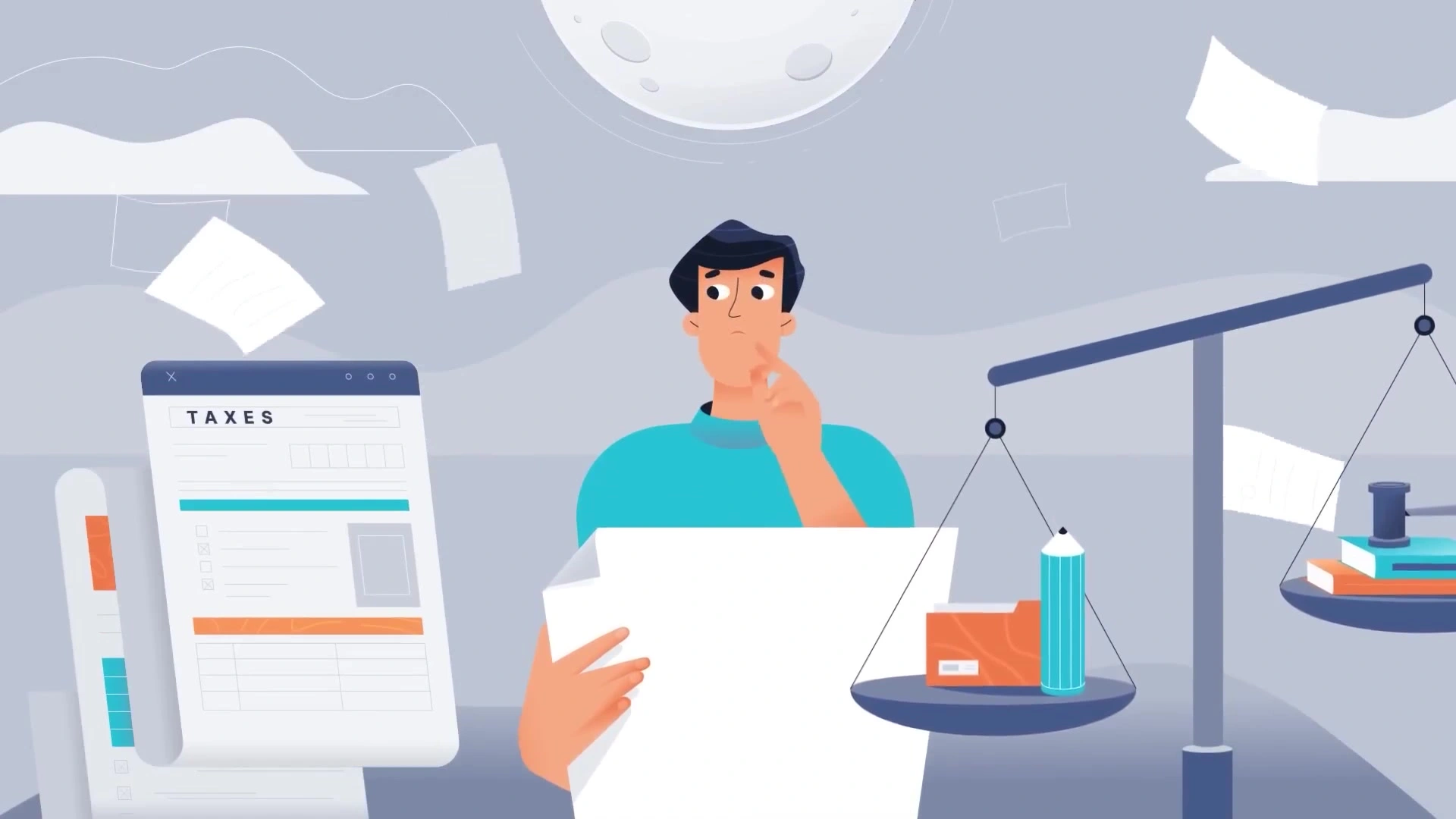As an eBay seller, dealing with taxes can be a daunting and time-consuming task. Understanding your tax obligations and ensuring compliance is crucial to avoid penalties and maintain the health of your e-commerce business. In this comprehensive guide, we'll dive into the world of eBay taxes, explaining what you need to know and providing step-by-step instructions on how to file your taxes accurately.







What are eBay taxes?
eBay taxes are the sales tax, VAT, or GST that sellers may be required to collect from buyers on their eBay sales, depending on the tax laws and regulations in the seller's and buyer's jurisdictions. These taxes are then remitted to the appropriate tax authorities.
When you sell on eBay, you are responsible for complying with the tax laws in your own country or region, as well as the destinations to which you ship your products. This can involve registering for tax permits, collecting the correct amount of tax from buyers, and filing tax returns on time.
Do you have to pay taxes on eBay sales?

In most cases, yes. If you sell goods on eBay as a business, you generally need to report your sales income and pay taxes on your profits. However, the specific tax rules and thresholds vary depending on your location and the nature of your eBay selling activity.
For example, in the United States, if you have $20,000 in gross sales and 200 transactions on eBay within a calendar year, eBay will issue you a 1099-K form reporting your sales to the IRS. You'll need to report this income on your tax return and pay any applicable income taxes and self-employment taxes.
Examples of eBay Taxes
- Sales Tax (United States): If you sell to buyers in states where you have a sales tax nexus, you may be required to collect and remit sales tax on your eBay sales.
- VAT (Value Added Tax) in the European Union: If you sell to buyers in the EU, you may need to register for VAT, charge VAT on your sales, and file VAT returns in the relevant countries.
- GST (Goods and Services Tax) in Australia: Australian eBay sellers must register for GST if their annual GST turnover is $75,000 or more, and charge GST on their sales.
- Income Tax (United States): A U.S.-based eBay seller with an annual net profit of $50,000 from their eBay business would owe approximately $7,500 in federal self-employment taxes, plus their marginal income tax rate on the profits.
- VAT (United Kingdom): A UK-based eBay seller with £100,000 in annual sales to UK customers would need to charge and remit 20% VAT on those sales, amounting to £20,000 in VAT payable to HMRC.
Types of eBay Taxes
Income Tax
As an eBay seller, you are generally required to report your profits from eBay sales as taxable income on your annual tax return. This involves tracking your sales revenue, deducting allowable business expenses, and paying income tax on your net profit.
Sales Tax
In the United States, many states require online sellers to collect and remit sales tax on their sales if they have a sales tax nexus in that state. A sales tax nexus can be established by having a physical presence, such as a warehouse or office, or by reaching certain sales thresholds in the state.
Value Added Tax (VAT)
VAT is a consumption tax levied on goods and services in many countries, including the European Union. If you sell to customers in the EU, you may need to register for VAT in each country where you have a VAT taxable presence, charge VAT on your sales, and file periodic VAT returns.
Goods and Services Tax (GST)
GST is a value-added tax used in some countries, such as Australia, Canada, and New Zealand. Similar to VAT, GST is charged on most goods and services, and businesses are responsible for collecting and remitting GST to the tax authorities.
How to file taxes on eBay sales

Filing taxes on your eBay sales involves several steps:
- Register for tax permits
- Set up tax collection on eBay
- Keep accurate records
- Report your eBay income
- File your tax returns
Step 1: Register for tax permits
Determine the tax jurisdictions where you have a tax obligation based on your sales activity and register for the necessary tax permits, such as sales tax permits or VAT registration.
How to register for tax permits
- Identify the states or countries where you have a tax nexus or obligation.
- Visit the website of the tax authority in each jurisdiction and follow their registration process.
- Obtain your tax permit or registration number.
Step 2: Set up tax collection on eBay
Configure your eBay account to collect the appropriate taxes on your sales based on the buyer's location and the applicable tax rates.
How to set up tax collection on eBay
- Go to your eBay account settings and navigate to the "Tax Information" section.
- Enter your tax registration numbers for each jurisdiction.
- Enable tax collection for the relevant states or countries.
- Verify that eBay is calculating and charging the correct tax amounts on your listings.
Step 3: Keep accurate records
Maintain detailed records of your eBay sales, fees, expenses, and tax collected. This information will be necessary when preparing your tax returns.
Record-keeping tips for eBay sellers
- Use eBay's sales reports or a third-party ecommerce accounting software to track your sales data.
- Save copies of your eBay invoices and payment records.
- Keep receipts for all business expenses related to your eBay selling activity.
- Regularly reconcile your eBay sales data with your bank statements and payment processor reports.
Step 4: Report your eBay income
Report your eBay sales income on your annual tax return, along with any other income sources. In the US, you'll typically use Schedule C (Form 1040) to report your eBay income and expenses.
Tips for reporting eBay income
- Calculate your gross eBay sales, including shipping and handling charges.
- Deduct allowable business expenses, such as eBay fees, shipping costs, and product costs.
- Determine your net profit or loss from your eBay business.
- Include this information on your income tax return, following the instructions for self-employment income.
Step 5: File your tax returns
File your annual income tax return and any required sales tax or VAT returns by the appropriate deadlines. Pay any taxes owed to the relevant tax authorities.
Tax filing deadlines for eBay sellers
- US income tax returns: April 15th (or October 15th with an extension)
- US sales tax returns: Varies by state, typically monthly, quarterly, or annually
- VAT returns: Varies by country, typically monthly or quarterly
- GST returns: Varies by country, typically monthly, quarterly, or annually
How much can you sell on eBay without paying taxes in 2024?

The amount you can sell on eBay without paying taxes depends on your country or region's tax laws and thresholds.
In many cases, you are required to report and pay taxes on your eBay income regardless of the amount. However, some jurisdictions have exemptions or thresholds for occasional sellers or those with low sales volumes.
United States
In the US, if you sell more than $20,000 and have more than 200 transactions on eBay in a calendar year, you'll receive a 1099-K form from eBay reporting your sales to the IRS.
However, even if you don't meet these thresholds, you may still be required to report your eBay income if you are operating as a business.
United Kingdom
In the UK, you may be able to take advantage of the £1,000 trading allowance, which allows you to earn up to £1,000 from self-employment without having to report it or pay tax on it. If your eBay sales exceed this allowance, you'll need to register as self-employed and file a Self Assessment tax return.
Australia
In Australia, if your annual GST turnover from eBay sales is $75,000 or more, you must register for GST and include it in your prices. If your turnover is below this threshold, you are not required to register for or charge GST, but you must still report your eBay income on your income tax return.
What happens if you sell more than $600 on eBay?
In the United States, starting from the tax year 2023, if you receive more than $600 in payment card transactions or third-party network transactions (such as eBay sales) in a calendar year, the payment processor or marketplace will issue you a 1099-K form.
This change was introduced by the American Rescue Plan Act and significantly lowered the previous 1099-K reporting threshold of $20,000 and 200 transactions.
If you receive a 1099-K form for your eBay sales, you must report this income on your tax return and pay any applicable taxes. However, even if you don't receive a 1099-K, you are still responsible for reporting your eBay income if you are operating as a business or selling goods for a profit.
Tips for managing eBay taxes
- Keep detailed records of your eBay sales, expenses, and inventory to simplify tax reporting and compliance.
- Use eBay's built-in tax tools or third-party eBay tax software to automate sales tax and VAT calculations and collection.
- Stay informed about changes in tax laws and regulations that may affect your eBay business, such as the recent changes to 1099-K reporting thresholds in the US.
- Consult with a tax professional or accountant familiar with e-commerce taxation to ensure you are meeting all your tax obligations and taking advantage of any available deductions or credits.
- Set aside a portion of your eBay income to cover your estimated tax liabilities, and make timely tax payments to avoid penalties and interest.
Link My Books for eBay Tax Accounting
.webp)
Managing your eBay taxes and bookkeeping can be a complex and time-consuming task, especially if you are selling on multiple platforms or have a high volume of transactions. This is where Link My Books, a powerful ecommerce accounting software, can help streamline your eBay tax accounting and save you time and hassle.
Link My Books integrates seamlessly with eBay, automatically importing your sales data, fees, and tax collected into your accounting software (Xero or QuickBooks).
By automating the data entry and reconciliation process, Link My Books ensures accurate and up-to-date financial records, making it easier to prepare your tax returns and stay compliant with tax regulations.
With Link My Books, you can:
- Automatically sync your eBay sales, fees, and taxes with your accounting software
- Accurately track your revenue, expenses, and profits
- Generate detailed financial reports for tax purposes
- Save time on manual data entry and reconciliation
- Get expert support from Link My Books' team of ecommerce accounting specialists
Don't let eBay taxes eat into your profits. Sign up for Link My Books today and save hours on your tax prep this quarter while ensuring accurate, compliant financial records. Start your free trial now!
Frequently Asked Questions about eBay Taxes
How much can you sell on eBay without reporting to the IRS?
In the United States, effective from tax year 2023, if you receive more than $600 in gross payments through payment card transactions or third-party payment networks (like eBay), you'll receive a 1099-K form, and the IRS will be notified of your income.
However, even if you don't meet this threshold, you are still required to report your eBay income if you are selling goods for a profit.
Do you have to report personal items sold on eBay?
If you are selling personal items on eBay occasionally and not for profit, you generally do not need to report the proceeds as income. However, if you sell personal items for more than their original purchase price, you may be required to report the gain as capital gains on your tax return.
How much does eBay take from a sale?
eBay charges various fees, including a final value fee (typically 10-15% of the sale price, depending on the category), an insertion fee for listing the item, and payment processing fees (if you use eBay's managed payments system). These fees are deducted from your eBay sales proceeds and should be factored into your pricing and tax calculations.
What expenses can I deduct from my eBay taxes?
As an eBay seller, you can typically deduct business expenses such as eBay fees, shipping costs, product costs, home office expenses, and equipment purchases. Keep accurate records of your expenses to maximize your deductions and lower your tax liability.
Do I need to file quarterly taxes as an eBay seller?
If you expect to owe more than $1,000 in taxes on your eBay income for the year (in the U.S.), you may be required to make quarterly estimated tax payments. Consult with a tax professional to determine if this applies to your situation and to avoid underpayment penalties.
What is the best and fastest way to file eBay taxes?
The best and fastest way to file your eBay taxes is to use ecommerce accounting software like Link My Books to automate your bookkeeping and generate accurate financial reports.
This will save you time and ensure you have the necessary data to prepare your tax returns quickly and efficiently. Additionally, working with a tax professional or accountant experienced in e-commerce can help you navigate the complexities of eBay taxes and ensure compliance with all applicable regulations.
Save Time on Your eBay Tax Filing with Link My Books

Filing taxes for your eBay sales can be a daunting and time-consuming process, especially if you are managing your bookkeeping manually or using spreadsheets.
Inaccurate record-keeping, compliance issues, and the risk of overpaying taxes can add to the stress and challenge of running an e-commerce business.
Fortunately, Link My Books offers a seamless solution to streamline your eBay tax accounting and save you hours of tedious work.
By integrating your eBay sales data with your accounting software (Xero or QuickBooks) and automatically categorizing your transactions, Link My Books ensures accurate and up-to-date financial records. This not only saves you time but also reduces the risk of errors and helps you claim all eligible deductions, potentially saving you money on your taxes.
With Link My Books, you can have confidence in your eBay tax filing, knowing that your financial data is accurate and compliant.
The software's user-friendly interface and expert support team make it easy to manage your eBay bookkeeping and taxes, even if you have limited accounting experience.
Don't let eBay taxes hold you back from growing your e-commerce business.
Sign up for Link My Books today and experience the benefits of automated, accurate, and efficient eBay tax accounting. Start your free 14 day trial now and take the first step towards stress-free tax filing.













.webp)




.png)